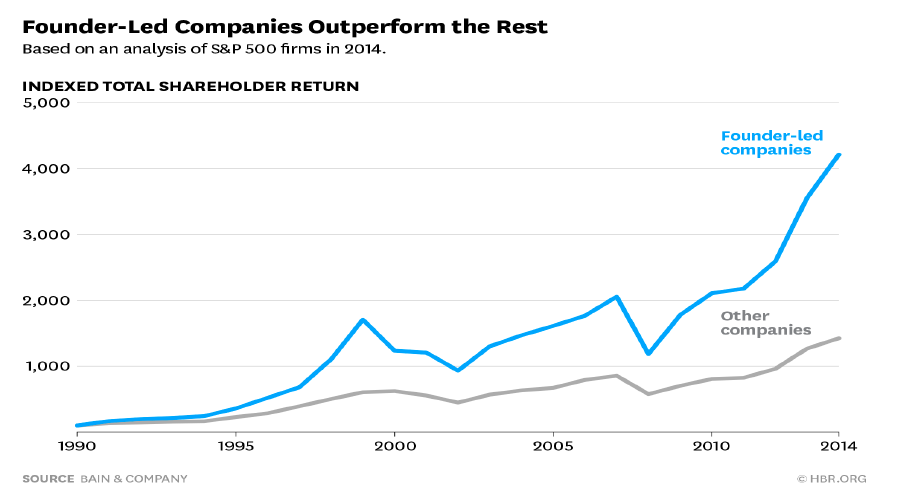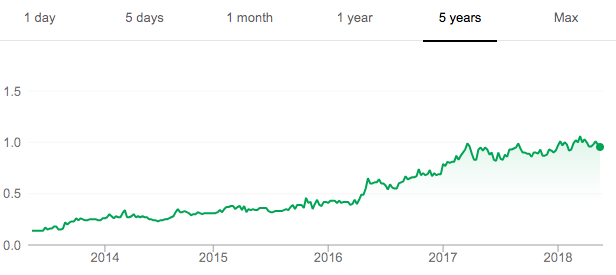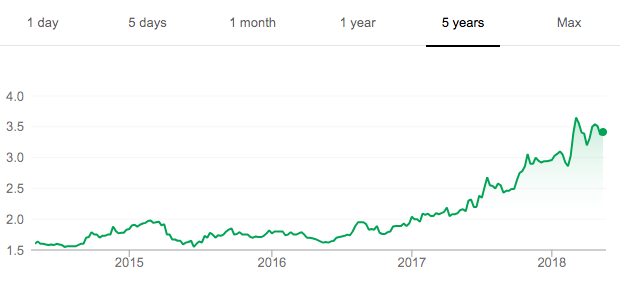Why 'skin in the game' drives performance
One of the key attributes we look for in a management team is clear evidence that they have “skin in the game”. All the evidence suggests that this is a powerful mechanism to ensure shareholders benefit from the best that management has to offer. In this wire, we discuss the significance of management incentives and provide two powerful examples of the strong results this can generate.
4 reasons having 'skin in the game' works

“To be successful in business and investing, you’ve got to have skin in the game, a stake in the company” ~Warren Buffet
The expression “skin in the game” is used a lot these days. So much so that it can be easy to forget just how powerful senior management incentives can be from a shareholders’ perspective. When we refer to senior management throughout this article, we are talking about both the top level management such as the CEO and CFO, as well as the executives and key managers who are responsible for overseeing and executing on the business’ strategy, and who often have as much influence on the success or failure of as a business as the CEO.
As a starting point, let’s delve into the reasons why management “skin in the game” is such a powerful motivator for management to succeed – some are obvious whilst others are less so:
- Clear financial incentives to succeed – Yes, this is obvious… Managing and building a business takes hard work, day in day out. Management teams who know they will benefit financially by going the extra mile tend to go the extra mile more often, and generally with greater success. The more management benefit financially, the more shareholders tend to benefit financially and vice versa. We want to invest in companies whose management are succeeding financially by creating wealth for their shareholders.
- Ownership mentality – By aligning managements’ and shareholders’ interests, these aligned management teams tend to think more as true business owners rather than as employees. And there is a striking difference between the way a business owner generally thinks and acts versus the way an employee does. Business owners take responsibility for everything happening in their business because the buck stops with them, whereas employees generally have someone above them in the corporate hierarchy who will ultimately take responsibility. We want to invest in management teams who take responsibility.
- Shareholder friendly management – When a large number of managers are major shareholders themselves, they are far more aware of shareholder treatment, and the importance of shareholder friendly management practices. For example, when it comes to deciding on the company’s dividend policy, a shareholder friendly management team will generally pay out the earnings they don’t need to re-invest in the business in the form of a healthy dividend. If they are receiving these dividends themselves, they are far more connected with shareholder friendly outcomes.
- Encourages a corporate culture based upon “meritocracy” – When a company’s senior management team are being paid in accordance with how financially successful the business is they are generally results-focused in their management approach. Results-focused management generally implies a culture of promoting people based upon results rather than how long they have worked in the company, who they know, etc. We want to invest in companies who encourage results and will promote people based upon merit.
2 powerful examples of effective management incentivisation
For the above-mentioned reasons, we are impressed when we see a large number of a company’s senior management team aliged with the long-term success of the company.
Two recent noteworthy examples of initiatives to align managers’ interests with shareholders in our portfolio are:
PIONEER CREDIT (ASX:PNC)
Financial services company Pioneer Credit recently changed their management incentives to focus upon performance over the next 3 to 5 year period rather than a shorter term period, with fourteen executives and senior managers being issued long term performance rights.
The following PNC management commentary summarises the benefits of this longer term way of thinking:
“Over the past 12 months, the Pioneer Board and Remuneration Committee have been working towards optimally structuring the Company’s remuneration incentives to ensure that executives and senior management are both appropriately rewarded and aligned to the Company’s strategic goal of sustainable long-term earnings growth. Due to the nature of Pioneer’s business, as an acquirer of assets that typically liquidate over a period of up to 10 years, the Board recognises the importance of appropriately incentivising employees such that they are accountable for the most significant part of tenure of acquired assets. Pioneer’s updated remuneration structure is designed to ensure that executives and senior management are focused on continuing to acquire appropriate assets at the optimal prices, rather than driving short term results.”
What this says to us:
- Management are forward-thinking about ensuring senior management are focused upon long term success rather than shorter term, less sustainable success. As long term investors we want to see management are thinking and planning for the long term.
- Given PNC’s business model involves acquiring debt portfolios and then running them off over a multi-year period, this long term compensation structure will ensure careful thinking and analysis ahead of each potential acquisition.
- Having 14 key managers participate in the incentive plan will help to ensure that the broad management team are all aligned towards the same long term goals.
- We remain confident in this management team to continue delivering based upon recent management meetings, and this development further solidifies that opinion.
BLACKWALL (ASX:BWF)
Property fund manager Blackwall recently granted options to six senior executives and managers at a $1.00 exercise price which is at a premium to the current share price ($0.95).
We were pleased to read the following commentary from the company’s management:
“The Board of Directors is of the view that employee and executive remuneration should be linked to the success of the Company and be expressed as ownership of it. As we are ASX listed, we have the benefits of share ownership schemes to attract and retain key personnel. For junior staff this has and will be achieved through the Employee Share Bonus Scheme and for Board members and senior executives through the Employee Share Option Plan (ESOP). The aim of each program is to both reward and incentivise.
What this says to us:
- Management are clearly incentivised to create significant long term shareholder value.
- Management are not giving themselves any “free lunches” here – the relatively high option exercise price means they will only benefit when we benefit as shareholders.
- We remain confident in this management team to continue delivering based upon recent management meetings, and this development further solidifies that opinion.
THE EVIDENCE
The empirical evidence is clear…

BWF 5 year performance:
 Source: Google
Source: Google
PNC 5 year performance:

Source: Google
CONCLUSION
Investing with the right management teams is a core part of an effective investment process, and ensuring management’s interests are aligned with shareholders is a key part of that assessment. We are always pleased to see our management teams well compensated for a job well done as it generally means our investors have done very well as shareholders, and are well placed looking forward.
3 stocks mentioned

